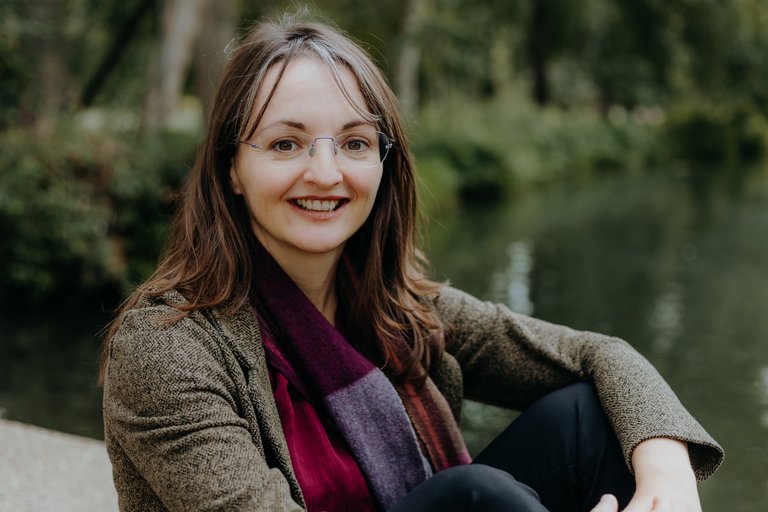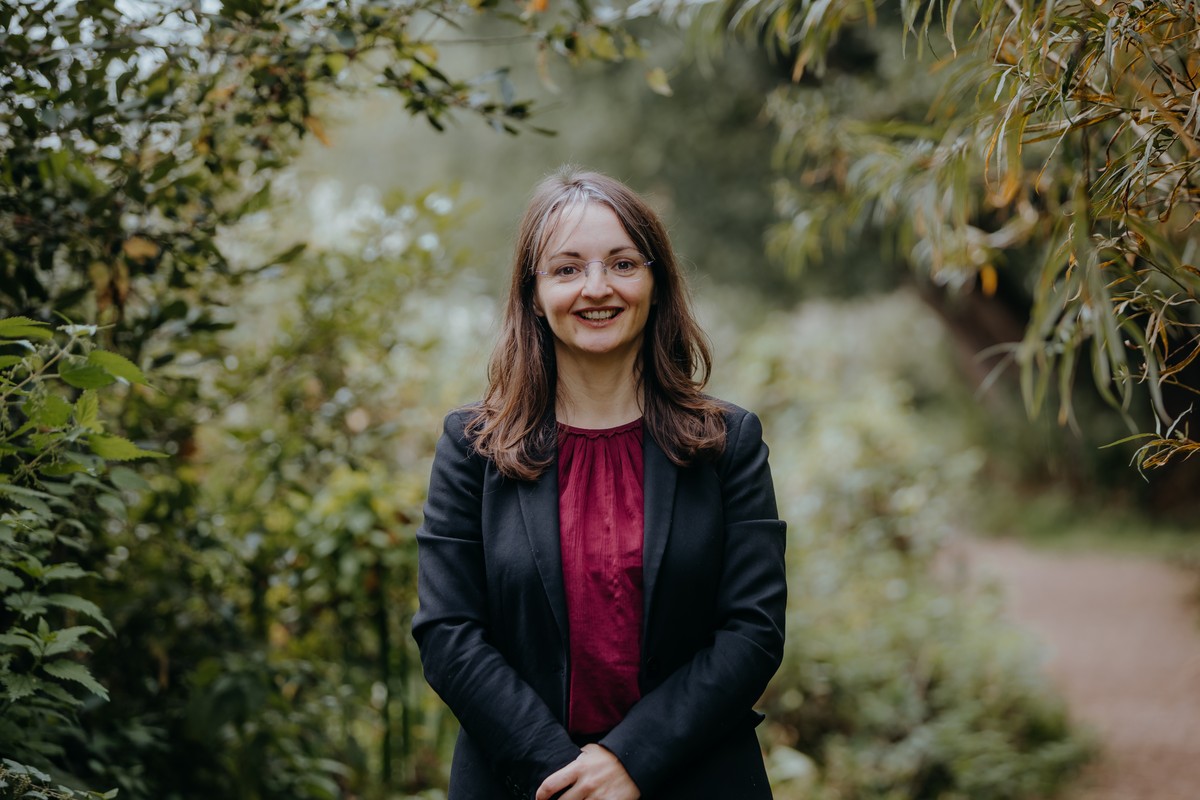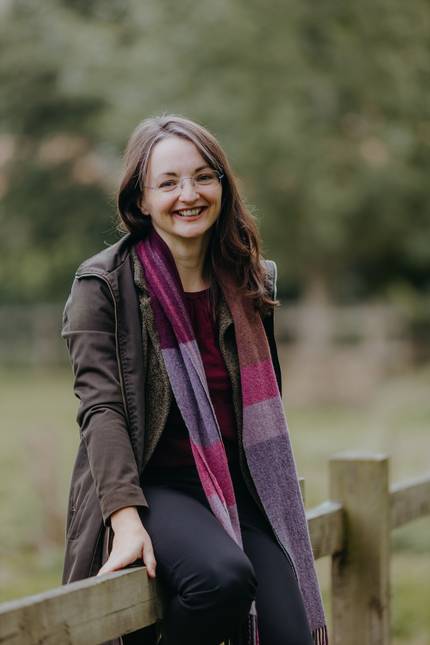“We have reached a point where economic growth does not give us greater well-being.”
Aiora Zabala Aizpuru (Irun, 1982) holds a degree in Environmental Sciences and a PhD in Ecological Economics. He is a researcher and professor at the Open University and Cambridge University, where he was editor of the scientific journal Nature Sustainability for four years. He is also dedicated to dissemination, on the environment, sustainability and human sciences, and last year he published the book Nature in Our Hands (Alberdania, 2022).
it was in the cycle of talks “In the light of women scientists”, invited by Elhuyar and Donostia Kultura, which offered the keys to understand the current situation and to imagine some scenarios of the future. We have received the most significant passages in writing.

You are a researcher and teacher, and for four years you have also been editor of the journal Nature Sustainability. Last year, you published an informative book: Nature in our hands. That’s a different job, isn’t it? How did you take the step?
It is true that the route has not been very linear, but I have always been interested in communication. I started collaborating on the radio, and then I realized that it was a good time to socialize these topics. In fact, those of us who work on this have been talking about it for decades, but 20 to 30 years ago these topics were not on the square. When I did collaborations on the radio I realized that there was a lot of interest, also because of the questions that my friends and family were asking me.
On the other hand, when I worked in the journal Nature Sustainability, I saw that there was a lot of knowledge that was very useful for everyday discussions. [...] Then I did what I often did at the table or with my family with the book: based on the examples I had lived, I adapted the content of the book. It was quite organic.
You have said it yourself: you have been researching the environment for years, but until today, the subject has not touched us so much. This does not mean that a path has not been taken in the protection of the environment. What could you highlight?
Environmental milestones depend on the context. For example, for me, the campaigns that were carried out in the Basque Country in the 1980s, or the anti-nuclear movement, are milestones.
If we look at the international scene, the movements that took place in 1960-1970 were also milestones. Some publications came out, such as the one written by Rachel Carson. It was then that the interinstitutional negotiations began and the United Nations Environment Programme was established. in the 1970s and 1980s a number of agreements were signed: From Basel (garbage), from migratory birds... And in 1992 there was a very important assembly in Rio de Janeiro on environment and development, which I believe put the issue on the agenda.
Over the past two decades, the climate emergency has gained prominence, especially since 2007, when the IPCC was awarded the Nobel Prize. But it can be seen that the trajectory is long, although in public opinion and in the narrative of the media there is only an environment in the last decade with such superiority.
It seems, however, that until we see the consequences for ourselves, we do not realize it. Is that so? And why does it happen?
Human beings are like this: when we see them in front of us, then we believe. And for what? There are some answers in psychology. For example, those who disagree with our values or our traditional way of life, or who cause us discomfort, are hard to believe. If progress, novelties or knowledge are for our benefit, then yes; but if it is the opposite, there is resistance.
However, according to experts, the climate change denial movement has lost its strength. But it is said that there is a new negationism that denies solutions. What is it based on?
Oh, yeah, yeah. This is a recent study that shows that as climate denialism decreases, so does the skepticism towards solutions. It is already difficult for anyone to say that climate change does not happen, but there will always be someone who opposes initiatives to combat it. And in order to do that, they need to come up with new arguments. This is the next step in a policy process.
These opposing arguments say that the solutions we propose are expensive, that they will not work, that we are late...
In the book, you have focused on society, escaping from the catastrophe and paralysis, in order to influence attitudes.
It is not about fighting catastrophism, but about overcoming it. In fact, I’ve been like this too: you see things and you see the impact of each one, of the pen, of the bottle... And it's exaggerated. There are some reactions to this. One is: the problem is very big and what I can do is very small. And the other is fear: climate change is terrible, etc. These can lead to immobilization.
To overcome this, I have learned from members and friends that it is very useful what everyone can do. Among the reasons is the process of diffusion: behaviors and initiatives, when they are new, are always carried out by a few, some pioneers. Then, little by little, the followers also begin to do this, and in the end, the initiative can expand a lot.
It can be the antidote to eco-anxiety, the antidote to the suffocation caused by concern for ingestion.
Eco-anxiety is one of the negative emotions we have towards the Earth, towards the planet, and many of us have it. Another emotion of this type is the solastalgia, that is, the sadness and the emotion that we feel when the environment changes in our place of residence. We are now making a summary of the literature on just that, and for the time being, we are studying how to measure these emotions.
There are a few studies on how to overcome these emotions, and the suggestions they provide are: on the one hand, to talk, not to keep, but to talk with others who feel empathy for these issues; on the other hand, to organize, be part of a group and do something for nature or society; and, finally, to receive more information, to know more details, to see that there have always been changes.
You mentioned being part of a team. There has been a general decline in militancy compared to previous periods, but there are also new movements such as Fridays for Future and rebel scientists. Can mobilizing scientists be a way to react and make them react?
When I was in Barcelona [20 years ago] we already had a debate about whether we were scientists or activists. Some said that science had to be separate because otherwise we would lose credibility, while others said that we could not stay still because we knew that important things were happening. In this case, yes, there is a way to come together and warn about what is going on, and we know that many things in history have been achieved in this way.
For example, when the nuclear bomb was being investigated, some refused, while others continued.
With this example, some may think that it was of no use, as the project progressed. But these people gave a message to society.
One of the main challenges we face now is the energy transition. We all see the need: scientists, society, even politicians. So why is it so difficult to agree on how the transition will take place?
I am very interested in this question because I am researching politics. And when we talk about it in general, it’s very easy to agree. “Nature must be protected”: there will be someone against it, but most will say yes. But when we get into the details, the discrepancies come out.
This is what happens with the energy transition. When we start thinking about where to put renewable sources, who will suffer the damage... that’s where the discrepancies appear. Along with that, there is a big push for the electrification of cars, and yes, that is part of the solution, but only that will not get us out of the problem.
The energy transition, if not done well, can also be bad. It can lead to an increase in consumption of, for example, rare minerals and can generate waste. What will happen to so many batteries if a battery recycling industry is not developed?
It should be thought of throughout the cycle; preferably it should be closed. It cannot be closed completely, because some material is always lost, energy is also degraded... but it is advisable to be as circular as possible.
In addition, in the energy transition, we must make use of renewables, but also of efficiency. And that’s what the IPCC said very clearly: efficiency gains have great potential to reduce carbon emissions, but not as much is invested in it. We have to ask why, if this will lead to the need for less energy sources, such as wind power, and if it also has electricity bills on the market. That's a big question for me.
In this connection, the IPCC said that, in investments, it is up to the global North to make the greatest effort because it is indebted to the global South.
That's what it is. This is an ecological debt. Historically, rich countries have extracted natural resources, minerals, agricultural production... from the economically poor. There is a risk that this debt will increase if the energy transition requires, for example, more lithium, from Chile, or other minerals from other places. We must also bear this in mind, although the impacts are far from over.
When we talk about this, social justice will be one of the most obvious challenges.
One level of social justice is within the country; for example, employment [because what is associated with an industry will be lost]. It must be planned very well so as not to cause a great injustice. And the other is the one just explained, the one about ecological debt.
You also mention the degrowth in the book, and it has also reached the political agenda. The concept, for once, yes, because the name itself seems to be in dispute.
I heard this word for the first time about 20 years ago in Barcelona and it has been developing slowly. The definition is not very clear or, more than the definition itself, the practices to reach it are not very clear, since they are very diverse. And it is true that it brings something negative to the mind of some. But we can also call it another way, such as post-growth or a-growth.
There are two things here. One is the indicator of economic growth, the gross domestic product (GDP) index, which has been dominant so far, and policies at national level are seeking to increase it. And what the degrowth or the post-growth says is that GDP should not have so much prominence; that we should look at other things, especially rich countries. We have reached a point where economic growth does not give us greater well-being, so we need to look at other indicators.
This discourse, however, comes from rich countries. If we ask the people of the South, they will tell us that they still have to grow a little because they have not yet reached this level of well-being. And that’s perfectly understandable; the concept is very northern.
Not giving so much importance to economic growth is one thing and another is how to carry it out. And here is a very simple definition, in my opinion: many of the things and services we consume today, many of the things we do, do not really give us much well-being. For example, if someone spends two hours in the car every day. This gives money growth, because it spends gasoline and pays for the car, but these two hours do not give a person well-being. It’s what degrowth and trends like this say: let’s think about the things in everyday life that give us well-being, and maybe we can put aside those that don’t.
In your book, you encourage the reader to reflect on what is behind the things they do or the decisions they make.
Yes, that is an important message of the book. For example, we are drinking coffee, and we can think about where that coffee comes from, what farmers planted the seeds, if it has received a decent payment, what effects this coffee has had on the ecosystem in which it has grown... Also what will happen after drinking coffee: if coffee comes in capsules, for example, it will be difficult to recycle; and if we drink it in the single-use glass, it will also leave a trace. It's having another chip to see the world.
He ended the conversation by recommending two books, and at the end, during the interval of questions, he made more interesting reflections. For those interested, the whole conversation is listened to.
Buletina
Bidali zure helbide elektronikoa eta jaso asteroko buletina zure sarrera-ontzian










